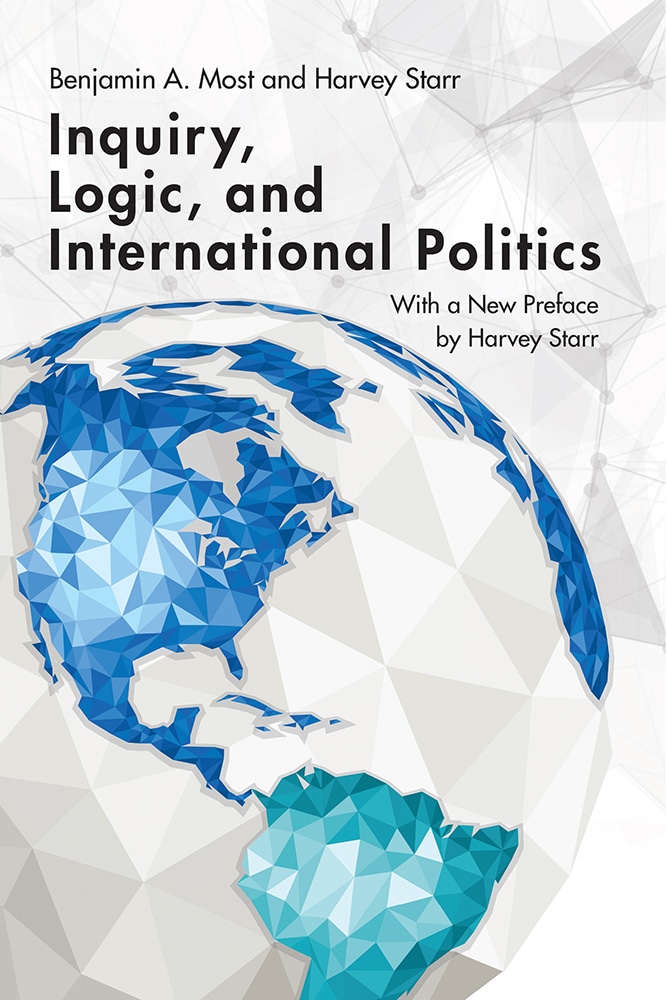An examination of the important roles of theory, logic, and method in international relations research
Through the use of logic, simulation, and empirical data, Benjamin A. Most and Harvey Starr develop and demonstrate a nuanced and more appropriate conceptualization of explanation in international relations and foreign policy in Inquiry, Logic, and International Politics. They demonstrate that a concern with the logical underpinnings of research raises a series of theoretical, conceptual, and epistemological issues that must be addressed if theory and research design are to meet the challenges of cumulation in the study of international relations (or any area of social science). The authors argue for understanding the critical, yet subtle, interplay of the elements with a research triad composed of theory, logic, and method.
Benjamin A. Most was an associate professor of political science at the University of Iowa at the time of his death in 1986. After receiving his doctorate from Indiana University, he taught at Brown University before moving to Iowa. Most distinguished himself as an expert in the study of war and international conflict, methodology, and research design and published in the area of comparative public policy, focusing primarily on Latin America. His work was presented in numerous articles appearing in the leading journals of the field.
Harvey Starr is the Dag Hammarskjöld Professor in International Affairs Emeritus at the University of South Carolina and is known for his expertise in the study of conflict, geopolitics, international relations theory, and the logic of inquiry. He is the author or co-author of eighteen books and almost one hundred articles and chapters, with recent books on the Israeli conflict system and on failed states. Starr has served as president and vice-president of the International Studies Association, president of the Peace Science Society (International), vice-president of the American Political Science Association, and president of the Conflict Processes Section of the American Political Science Association.
"A major contribution to the introspective literature on international relations theory. The objective of these two mainstream practitioners of quantitative international politics (QIP) is to enhance the understanding of international relations by improving the ability of social scientists to explain international phenomena. Most and Starr have succeeded admirably."—Choice
"There are many useful ideas in this excellent volume that a short review cannot cover fully. I recommend it to all practitioners of international relations research. Moreover, Inquiry, Logic, and International Politics should be part of the required readings for all graduate seminars on international relations. This volume should serve well to train future generations of international relations scholars and to remind the current generation of the importance of sound logic of inquiry."—Steve Chan, University of Colorado, Boulder, The Journal of Politics
